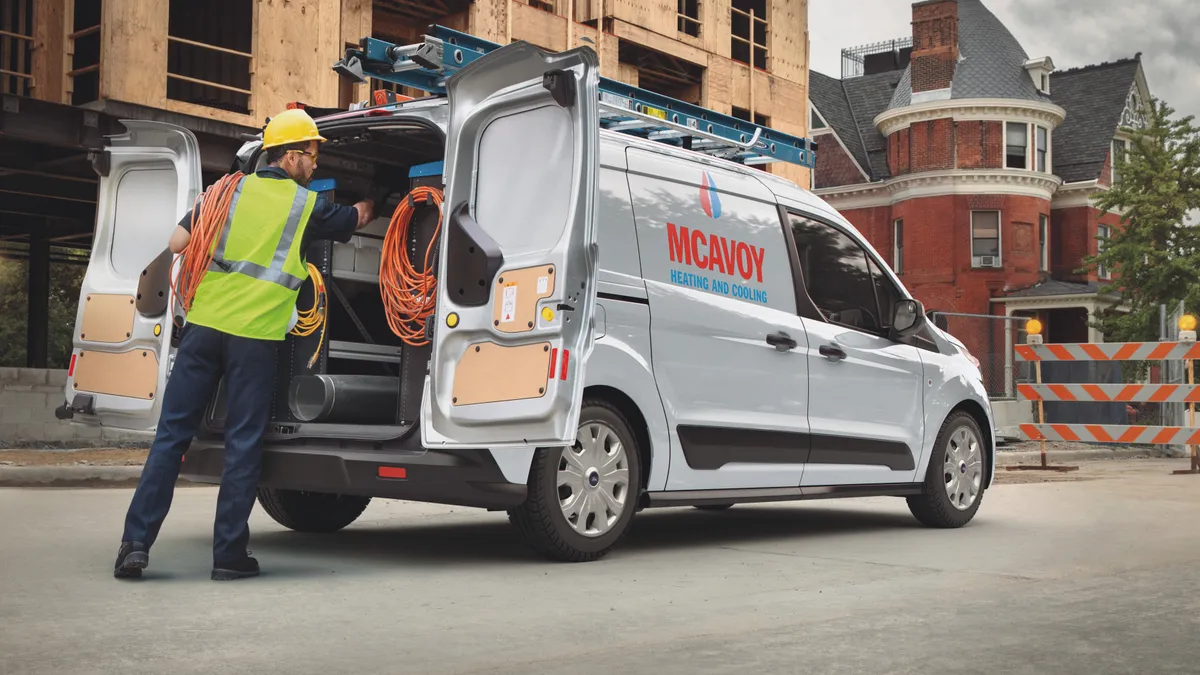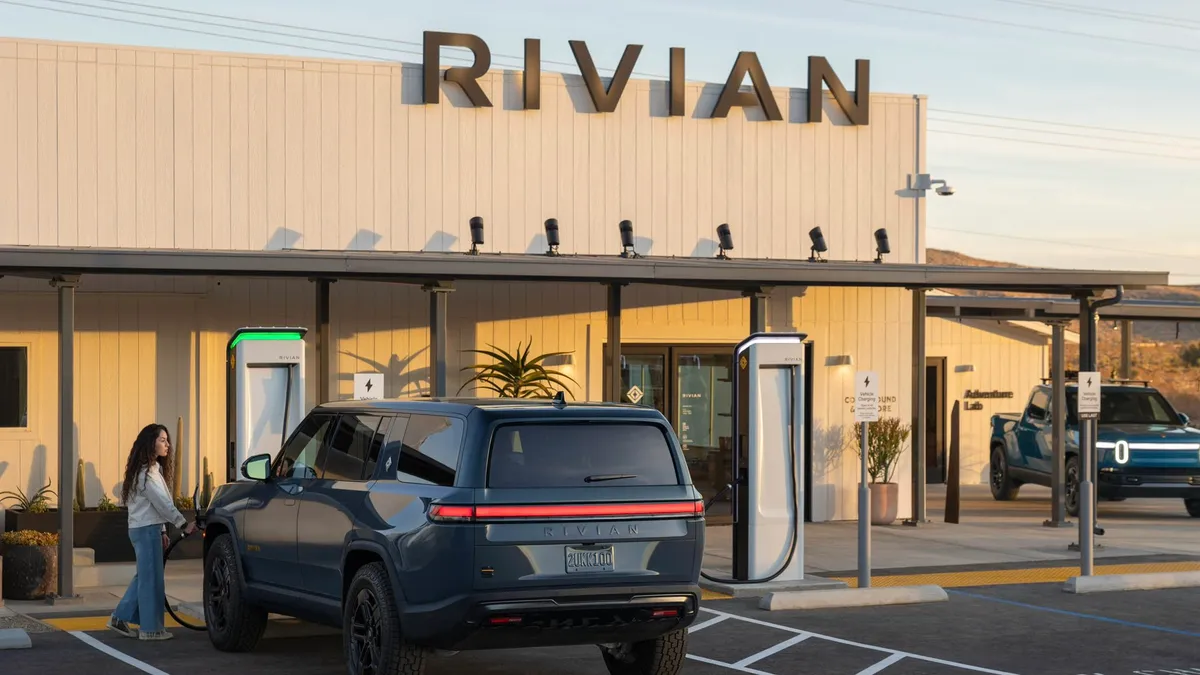The Justice Department announced Monday that Ford Motor Co. will pay the U.S. federal government $365 million in fines to settle allegations that it misclassified and undervalued Transit Connect cargo vans to get around the so-called “chicken tax.”
The settlement ends a long-running dispute over Ford’s alleged attempt to avoid paying the infamous tax — a decades-old 25% tariff on imported cargo vehicles. From April 2009 to March 2013, the automaker allegedly disguised the cargo vans as passenger vehicles by installing temporary rear seats in Turkey-assembled Transit Connect models.
The tactics meant Ford allegedly paid a 2.5% tariff designed for passenger vehicles on the cargo vans rather than the required 25% duty on imported cargo vehicles. The automaker did not admit liability as part of the settlement.
The fine represents one of the largest customs penalty settlements in recent history, according to the press release.
The so-called "chicken tax" got its name decades ago when, in 1964, the U.S. government imposed a 25% tax on imported cargo vehicles in retaliation for European tariffs on U.S. chicken imports, according to a March 2023 blog post by Robert McClelland, a senior fellow at the Tax Policy Center.
McClelland notes other automakers, including Subaru, have previously installed unnecessary seats in some vehicles to avoid paying the chicken tax. In Subaru’s case, the automaker installed two plastic seats in the bed of a small pickup truck, the BRAT, from 1978 to 1985.
Meanwhile, Toyota and other automakers often assemble light-duty trucks in the U.S. due, in part, to the additional costs imposed by the tax, according to McClelland.
Despite its seeming effects on U.S. truck production, the policy has drawn significant debate from policymakers over the years.
Some policy experts say the chicken tax has made selling imported pickup trucks more expensive, thereby making it easier for General Motors, Ford and Stellantis to dominate the highly profitable light-duty truck segment.
“Tariffs on imported trucks leaves domestic manufacturers with little competition,” said Daniel Griswold, an adjunct scholar specializing in trade and immigration policy at the Cato Institute, in a March 2022 commentary. Light-duty trucks make up 68% of the U.S. market and 83% of the vehicles produced by the Detroit Three automakers, according to a regulatory comment by the American Automotive Policy Council.
Still, others argue that even if the U.S. ended the chicken tax, it would probably not significantly improve competition or change customer preferences.
“All of the world's major producers are already operating in the United States,” the Cato Institute wrote in a 2003 white paper. “Having made huge investments in U.S. truck production, they're not about to leave even if the truck tariff were eliminated.”














